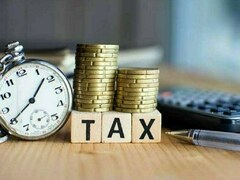The monetary policy is due on Tuesday. The SBP clearly mentioned in the previous forward guidance that current real interest rates on forward basis are appropriate to guide the inflation to the medium-term range of 5-7 percent. Does this imply that there would be no change on Tuesday? There was not a case of any change in the outlook till last week. But there are latest developments that could perhaps compel the SBP to alter the forward guidance, if not rates.
SBP’s decision to keep real interest rates negative is hinged upon a prudent fiscal policy along with other factors. The supplementary budget announced prior to the last policy decision was supposed to curtail the demand through imposition of new taxes and by increasing taxes on petroleum products. These steps were supposed to compensate for accommodative monetary policy.
Now with PM relief package freezing petroleum prices at lower levels till budget, SBP’s thinking might change. This in the backdrop of a global frenzy in commodity prices due to the Russia-Ukraine war which is creating risks on the external and fiscal accounts. For SBP, the key is not inflation, it is the current account deficit.
“The current account projection is subject to risks on both sides. On the one hand, the deficit could be larger if global commodity prices take longer to normalize. On the other, it could be smaller if the fiscal consolidation associated with the Finance (Supplementary) Act has a faster and more pronounced impact on demand.” These are the words of MPS. Now both the global commodity prices and fiscal consolidation risks are emerging. This can make SBP hawkish in its stance.
The current account deficit stood at $2.6 billion in January which is the highest ever number. And oil prices briefly touched $120/barrel on Thursday, a sharp increase from $95-100/barrel levels when the PM relief package was announced. SBP must be taking notice of these potential fiscal slippages and the impact of growing commodity prices – especially oil, on the current account. Lower the prices in PKR, higher is the demand. The fiscal side is not working on curtailing the demand as against the SBP’s expectation.
The question is how would monetary policy and currency react to these changes. It appears likely that interest rates will move up and the currency will depreciate if commodity prices persist at higher levels. The countries with buffers are offering subsidies- such as Japan, while those living on the edge are taking administrative and economic steps to cut demand – such as Sri Lanka.
Pakistani authorities are taking the subsidy route. But the country does not have buffers to withstand for long. The SBP must act accordingly. Inflationary pressures will build up despite government freezing petroleum prices and reducing electricity prices. The wages are moving up. Government has revised the salaries of its employees. Private sector is doing the same. Some banks have revised up the salaries and many others are to follow. Will this create wage-price spiral?
The situation is fluid. Times are desperate and require desperate measures. Without effective fiscal and administrative measures, SBP should flex its muscles. There could be some votes for rate increase on 8th March, if not majority. There could be pressure on currency in coming weeks even though a chunk of current account is fully financed. Fasten the seat belts.























Comments
Comments are closed.